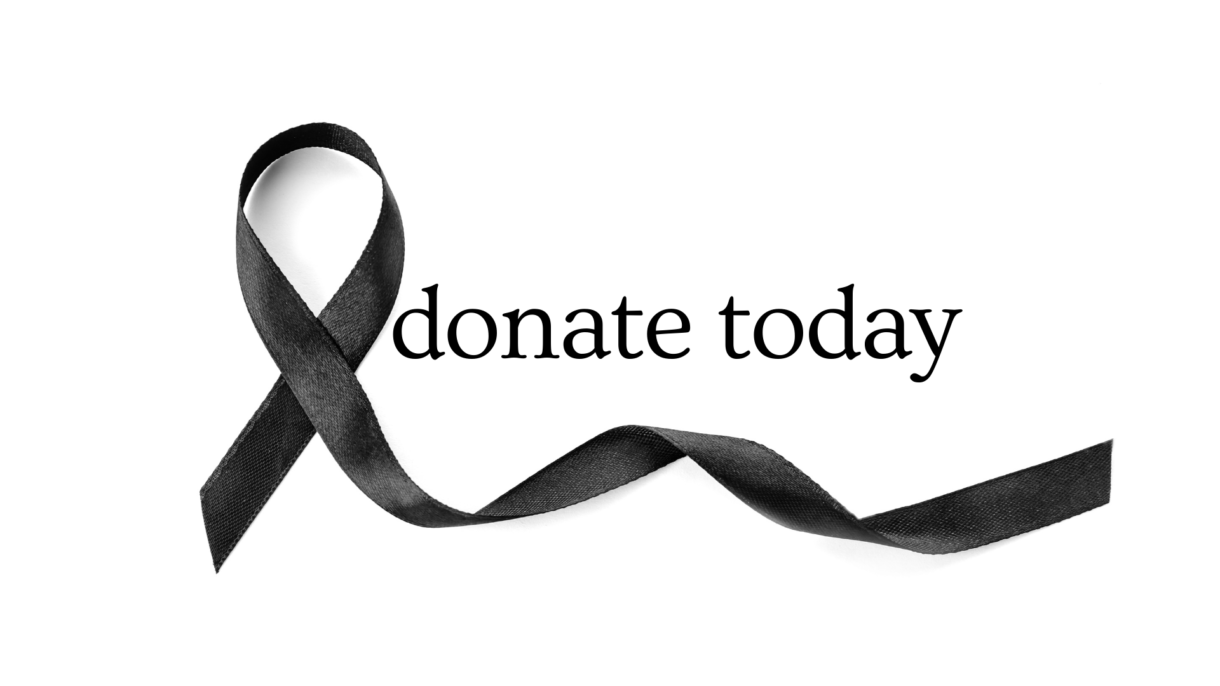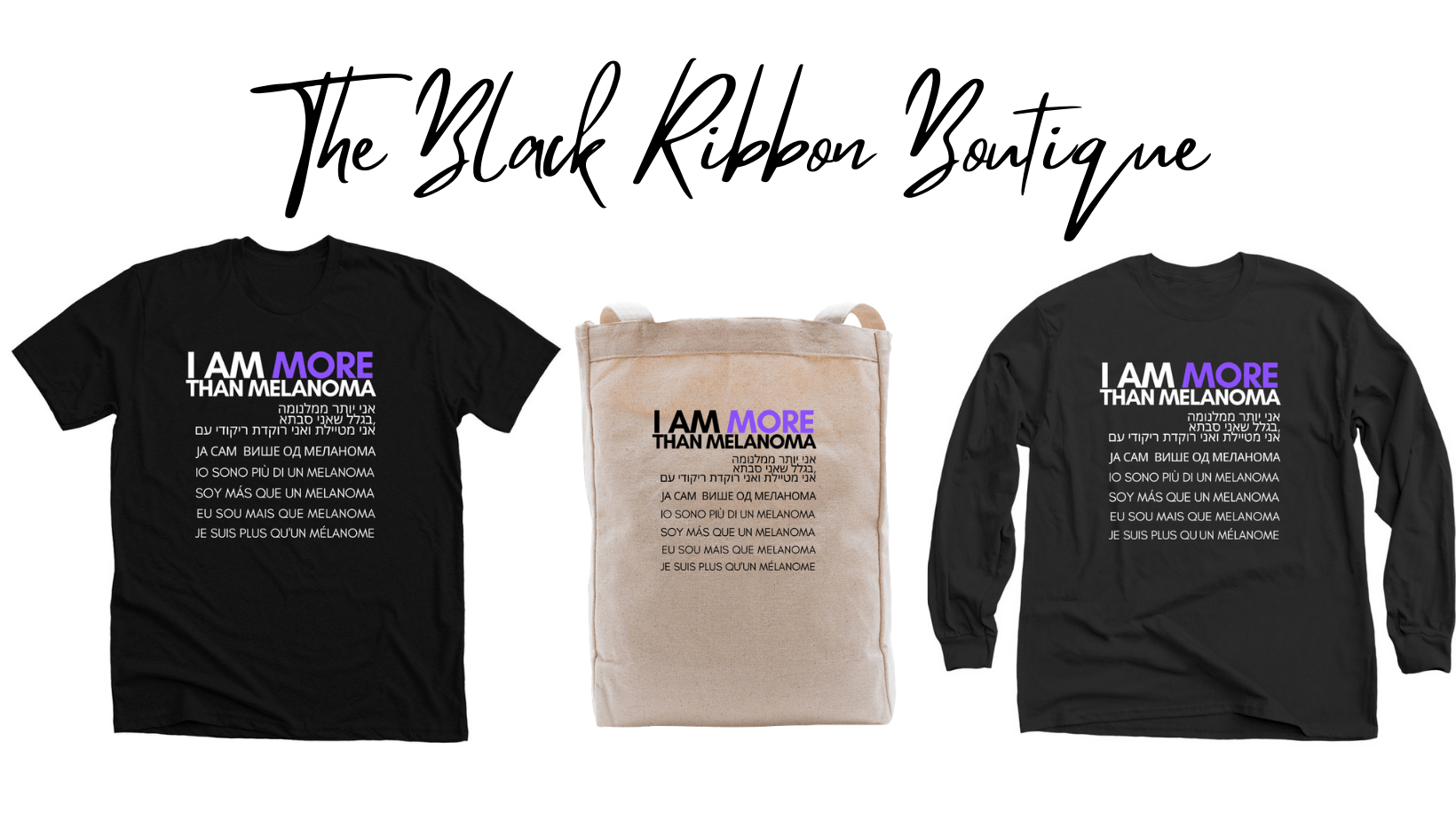May is Melanoma Awareness Month
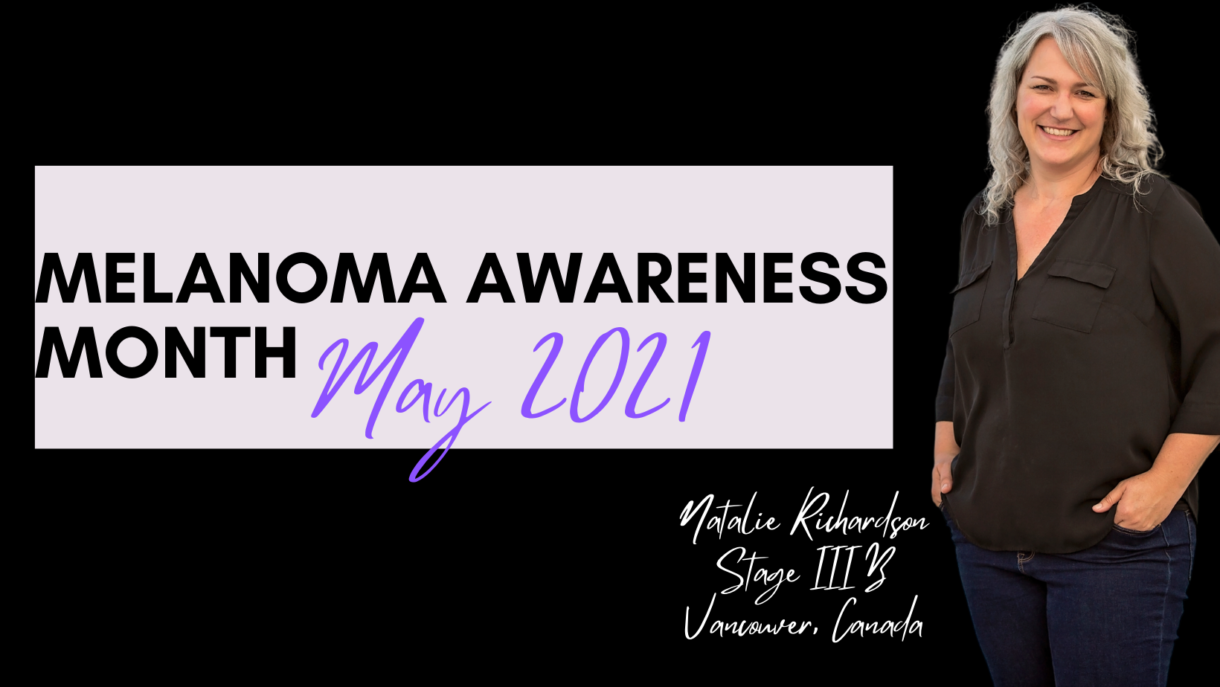
By Alicia Rowell, Vice President
May is Melanoma Awareness Month, as most anyone reading this article is probably aware. Each year, AIM readies for May with sun safety tips, prevention reminders, and additional awareness information. Other melanoma and skin cancer organizations do the same. And all of this information is good for the general public, because we know that education can help lower the number of melanoma cases in the future.
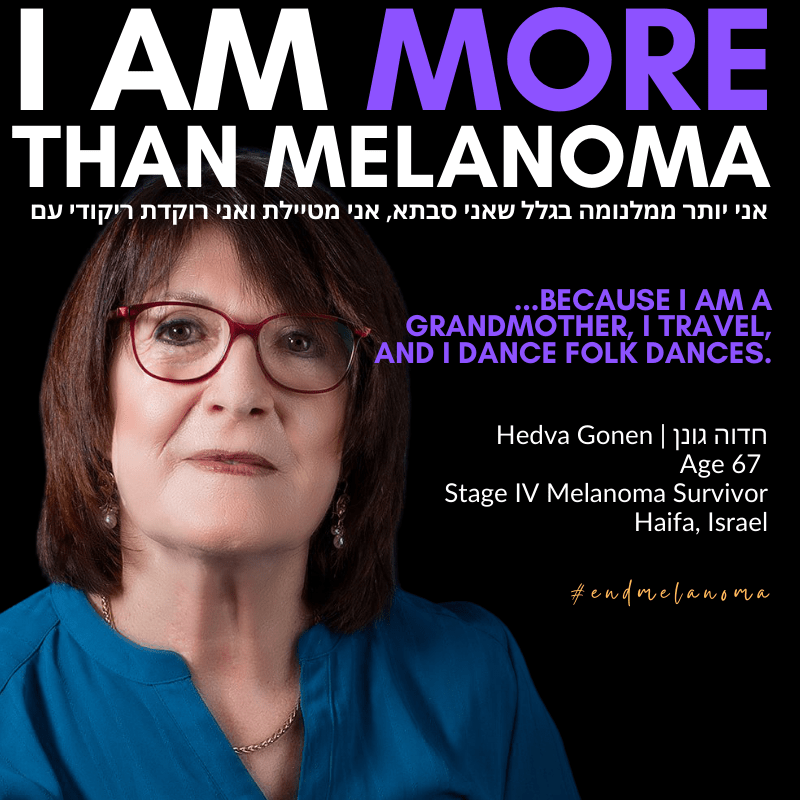 But this year AIM decided to add another dimension to our Melanoma Awareness Month offerings. Our campaign still has the usual messages about prevention and awareness, but we’ve also focused on a different angle: melanoma as a global disease.
But this year AIM decided to add another dimension to our Melanoma Awareness Month offerings. Our campaign still has the usual messages about prevention and awareness, but we’ve also focused on a different angle: melanoma as a global disease.
“I am more than melanoma” is a statement that we have heard from many survivors over the years, so we decided to make it our feature this May. Survivors tell us that the disease may take over their lives for a period of time—that it feels like the only thing in their lives for a while—but they know that they are so much more than a cancer. They survive and thrive. Despite melanoma. Regardless of melanoma. Beyond melanoma.
We worked in conjunction with our international advocates on this campaign, and all of them were eager to tell us who they are beyond their melanoma. The answers were run-of-the-mill and beautiful for exactly that reason: their everyday-ness. I am more than melanoma because I am a grandmother; because I love to travel; because I love life; because I am a daughter; because I have people by my side; because I have an unshakable faith; because I am a husband; because I am a mummy…and so on.
Check out our store with “I am more than melanoma” t-shirts, sweatshirts, and more that our global advocates helped us design—each item displaying this message in multiple languages.
The second part of the global campaign for May is called Melanoma Has No Borders. This fact is ever-present for AIM, as our work is truly global. When Valerie Guild’s daughter, Charlie, died of melanoma in 2003, Val set out to ask some of the world’s foremost melanoma researchers what was missing in the fight—what she could do with her foundation that could make a difference. One of the general answers was bringing global knowledge together. Val—and AIM—have accomplished and continue to accomplish this feat in a variety of ways.
The Melanoma International Patient Advocacy Coalition (MIPAC) is a group AIM founded to help spread prevention, early detection, and treatment information in multiple countries. AIM works with advocates who run melanoma non-profits in their native countries, and we fund aspects of their work. For example, AIM provides both funding and content for websites, social media campaigns, and traditional media campaigns in a variety of countries. Many of AIM’s educational materials are translated for use in these countries/regions, including AIM’s website. MIPAC comprises patient advocacy organizations and patient advocates from Australia, Brazil, Canada, Eastern Europe, France, Israel, Italy, Latin America, Portugal, Spain, and the United Kingdom. We work together—on a global level—to improve outcomes for patients.
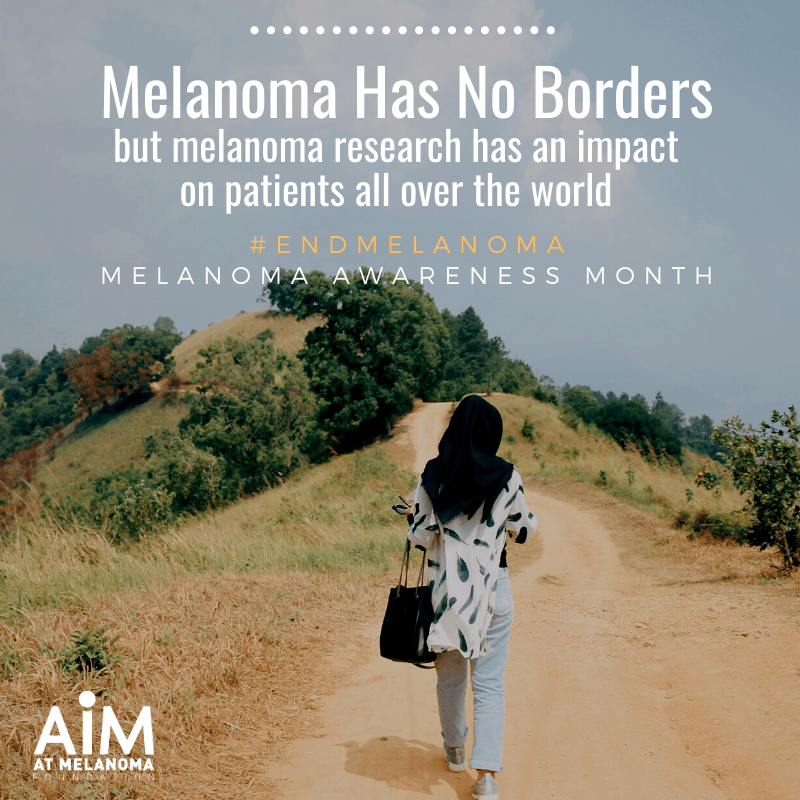 International Melanoma Working Group (IMWG) is a think tank that meets biannually. The group is approximately 25 of the world’s leading melanoma researchers. The meeting was born out of frustrations about the lack of collaboration and communication among the world’s melanoma researchers and agreement on the need for an informal gathering of a relatively small group of melanoma experts to share data, discuss ideas, and plan collaboration—a meeting above and beyond the formal, presentation-style conferences that many researchers already attended. Additionally, there was a belief that researchers would benefit from interacting informally with pharmaceutical companies, and vice-versa, so a handful of industry partners were invited, too. The inaugural meeting of this think tank was in 2011, and AIM continues to host this meeting twice each year. This year, the group was joined by Marc Theoret, who is the lead medical officer in the Office of Hematology and Oncology Products in the Office of New Drugs in the Center for Drug Evaluation and Research at the U.S. Food and Drug Administration.
International Melanoma Working Group (IMWG) is a think tank that meets biannually. The group is approximately 25 of the world’s leading melanoma researchers. The meeting was born out of frustrations about the lack of collaboration and communication among the world’s melanoma researchers and agreement on the need for an informal gathering of a relatively small group of melanoma experts to share data, discuss ideas, and plan collaboration—a meeting above and beyond the formal, presentation-style conferences that many researchers already attended. Additionally, there was a belief that researchers would benefit from interacting informally with pharmaceutical companies, and vice-versa, so a handful of industry partners were invited, too. The inaugural meeting of this think tank was in 2011, and AIM continues to host this meeting twice each year. This year, the group was joined by Marc Theoret, who is the lead medical officer in the Office of Hematology and Oncology Products in the Office of New Drugs in the Center for Drug Evaluation and Research at the U.S. Food and Drug Administration.
Perhaps the most important of these international projects is AIM’s International Melanoma Tissue Bank Consortium (IMTBC). This collaborative, fresh frozen primary tissue bank is something that does not currently exist anywhere else. The goal is to collect 500 fresh frozen primary melanoma tumors and the depersonalized data from each patient. The 500 tumors will come from four sites in the U.S. and two in Australia, so that there is a variety of people and backgrounds in the bank. Four of the six branches are open and collection is resuming now that COVID is waning. Melanoma has no borders, but melanoma research has an impact on patients all over the world.
We hope this month you will pass on whatever messages from Melanoma Awareness Month resonate with you.
